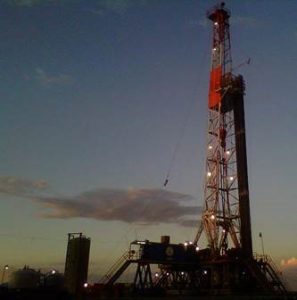 The stakes are high for businesses to support strengthened Environmental Protection Agency methane regulations.
The stakes are high for businesses to support strengthened Environmental Protection Agency methane regulations.
While there are multiple pathways to achieve a net zero carbon emissions future by 2050 in the U.S., it’s clear that the oil and gas industry can and must virtually eliminate methane emissions. Not only is methane control an environmental priority, it is the most immediate and cost-effective decarbonization option for natural gas. Action on methane is a litmus test of industry’s ability to make necessary changes, and build the muscle to support responsible public policy that cuts emissions and stimulates innovation.
The late November close of the comment period on EPA’s proposal to eliminate methane regulation and exempt large segments of industry from pollution control requirements shows a growing industry divide. A review of industry filings to EPA reveals three game changers for the politics and policy of federal methane regulation.
Smaller companies start to weigh in
The false narrative that only the largest companies have a stake and voice in supporting methane regulations is unraveling. Pioneer Natural Resources made history by becoming the first pure play Permian Basin oil and natural gas producer to speak out against EPA’s proposal, and emphasized that it “does not support” deregulation of methane. As dozens of other operators in Pioneer’s asset class face similar dynamics of ESG conscious investors and an abundance of cost-effective emission control options, eyes will turn to other independent producers to support policies that help the environment and industry can live with.
New companies oppose methane rollbacks but industry divide remains Share on XEqually noteworthy, Jonah Energy commented to EPA, touting its well-beyond-compliance monthly inspection program, and stated that it too “does not support” EPA’s proposal. As a private equity backed, regionally-focused independent, Jonah paves the way for handfuls of other private equity financed companies — in many cases funded by climate conscious European asset owners — to call for win-win environmental policies in the years to come.
Natural gas buyers exert pressure
Public pressure from natural gas buyers is also a game changer. As lead of EDF’s global work with the private sector to reduce oil and gas methane emissions, I hear more regularly from buyers about their concerns for what methane emissions mean for the reputational risk and future of gas, and their appreciation of the indispensable role of government regulation to help ensure cleaner natural gas. The energy transition has no one silver bullet, but strengthening methane regulations is an essential task because the climate impacts of the pollutant are so great, and the challenge so diffuse.
A group of electric and gas utilities demonstrated strong leadership, filing comments to EPA commendable for their conviction, clarity and detail. The group — which includes utilities like Exelon, PSEG and PG&E — wrote “it is important for EPA to maintain the current requirements to deploy cost effective technologies that protect the environment and public health and to ensure a consistent regulatory framework.”
Innovation changes the game
The advance of new technologies and methods to monitor and control emissions faster and more cost-effectively than before is well recognized by industry. Many public comments against EPA’s proposal reflect that innovation is a game changer.
After reiterating its support for direct federal regulation of methane, BP noted that its emission control efforts “are also directed at smaller and existing sites,” and that drone-based leak detection “increased the number of wells surveyed in a given day, which can lead to significant cost savings.” Equinor also highlighted innovation, noting its equity investment in SeekOps, a technology entrepreneur with a NASA originated sensor also deployed by drone and tested in the Stanford/EDF Mobile Monitoring Challenge.
But it’s not all rosy
Although numerous bright spots emerged in industry’s responses to EPA’s proposal, there are indicators that show continuing divisions in industry. Trade associations — such as American Petroleum Institute and Independent Petroleum Association of America — maintained their years-long, lowest common denominator approach urging reckless federal deregulation of a climate pollutant over 80 times more powerful than CO2 when first emitted to the atmosphere. This could prove costly for industry’s license to operate, access to capital or both. Meanwhile, Edison Electric Institute and American Gas Association filed some of industry’s weakest comments, amounting to little more than a generic advertisement for natural gas and promotion of a voluntary industry program sure to attract increased levels of scrutiny and skepticism due to its sponsor’s unwillingness to take a clear stand on defending a regulatory backstop.
Further, Chevron continued to miss the mark on its Methane Guiding Principles commitment to advocate methane policy and regulation by de facto siding with API in doing the opposite. And other companies, from those in the liquefied natural gas segment to independent producers that elsewhere tout their climate consciousness, invite skepticism for their apparent support of relentless anti-environmental lobbying by trade associations like API.
EPA’s own analysis demonstrates their rollback attempts would harm the environment, and public comments from leaders in industry show that they do not support this overreach. EPA’s proposal is also broadly opposed by states, methane mitigation companies, tribes, health and environmental groups and others. This near uniform opposition underscores the harmful nature of EPA’s proposal. If EPA continues its ideologically driven agenda — even as the climate crisis deepens — the private sector backlash will likely only grow.









